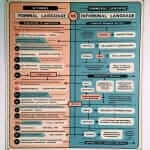As an IELTS instructor with over 20 years of experience, I often encounter students who get lost in complex vocabulary and miss the essence of the IELTS Reading test. One surprising area of difficulty? Understanding simple, everyday language in the context of academic passages. You might be surprised how often phrases like “Could you pass me my glasses, please?” appear in IELTS Reading, and how crucial it is to understand their implications.
The Importance of Everyday Language in IELTS Reading
While the IELTS Reading test does assess your vocabulary, it goes beyond just recognizing difficult words. It evaluates your ability to:
- Comprehend meaning in context: The same phrase can have different meanings depending on the situation.
- Identify the writer’s purpose: Is the writer simply stating a fact, making a request, or implying something else?
- Understand inferences and implications: This means going beyond the literal meaning to grasp the underlying message.
“Could You Pass Me My Glasses, Please?” – More Than Just a Request
Let’s dissect the phrase “Could you pass me my glasses, please?” in the context of IELTS Reading.
Imagine this phrase appears in a passage about the aging process. Here, it’s not just about someone needing help to see. It could be used to illustrate:
- Declining eyesight: A common effect of aging.
- The need for assistance: Highlighting the challenges faced by the elderly.
- A shift in family dynamics: Perhaps indicating a role reversal where children now care for their parents.
Example from an IELTS Reading Passage:
“As people age, everyday tasks can become increasingly challenging. Sarah, for instance, found herself constantly asking her son, ‘Could you pass me my glasses, please?’ a simple request that underscored the gradual decline in her vision and her growing dependence on others.”
 Elderly Person Asking for Help with Glasses
Elderly Person Asking for Help with Glasses
In this example, understanding the underlying meaning of the phrase is key to answering questions about:
- The main idea of the paragraph.
- The challenges faced by aging individuals.
- The author’s purpose in using Sarah’s experience as an example.
Tips for Tackling Everyday Language in IELTS Reading:
- Don’t skim over “easy” phrases: Pay close attention to how they are used and what they might suggest.
- Consider the context: Think about the passage’s topic, the writer’s tone, and the overall purpose.
- Look for implied meanings: What is the writer trying to convey beyond the literal words?
Conclusion:
Mastering IELTS Reading involves more than just memorizing vocabulary. It’s about becoming a perceptive reader who can analyze language, context, and authorial intent. So, the next time you encounter a seemingly simple phrase like “Could you pass me my glasses, please?”, remember that it might hold the key to unlocking a deeper understanding of the passage and achieving your desired IELTS score.


